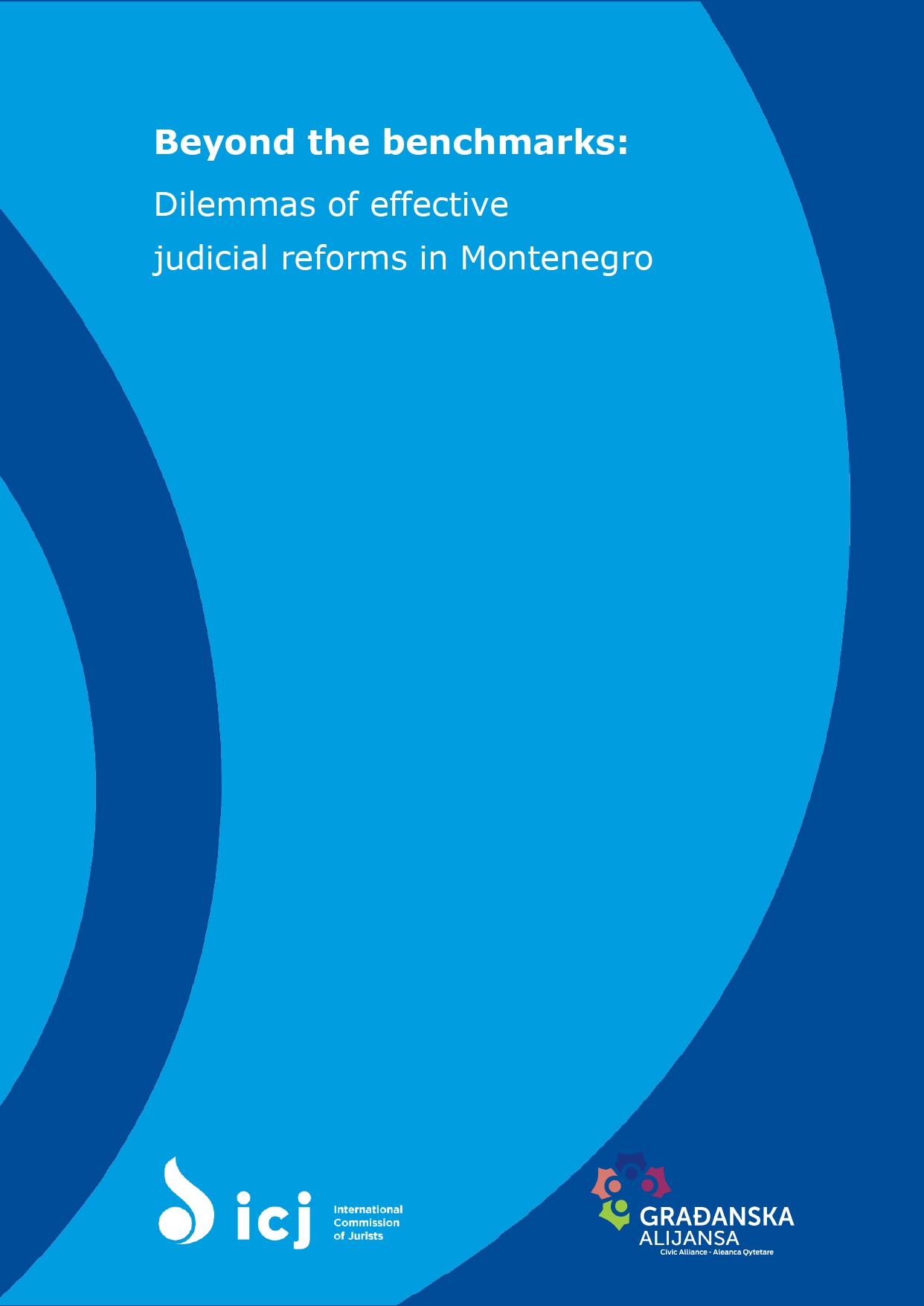The International Commission of Jurists (ICJ) published today a report on the judicial system in Montenegro, summarizing its findings and presenting specific recommendations for reform.
In April 2024, the ICJ conducted a mission to Montenegro to assess the independence of the judiciary and the effectiveness of the justice system in light of recent judicial reforms. The report, titled “Beyond the Benchmarks: Dilemmas of Effective Judicial Reforms in Montenegro”, presents the findings of the mission and outlines the necessary steps to ensure that Montenegro meets its international obligations regarding judicial independence and efficiency.
Following the recent change in government and its aspirations to join the European Union, Montenegro has implemented several legislative reforms aimed at enhancing judicial independence and efficiency. Although substantial progress has been made, under the guidance of the Venice Commission and the European Commission, the ICJ’s report highlights that critical shortcomings and legal gaps still remain within the system.
The report identifies several key challenges that continue to undermine the judiciary’s effectiveness and independence, including issues related to the structure of the Judicial Council, personnel shortages, case backlogs, and judicial integrity. In response to these challenges, the ICJ offers specific recommendations aimed at addressing these persistent issues:
- Judicial Council Structure: the inclusion of the Minister of Justice as an ex officio member ties the judiciary too closely to the executive, compromising its independence. Additionally, fewer than half of the Council’s members are judges elected by their peers, weakening the principle of judicial self-governance.
- Judicial personnel shortage: the judiciary is suffering from a significant shortage of personnel, exacerbated by lengthy and cumbersome judicial appointment processes: Political polarization has led to prolonged vacancies in key positions, such as the unfilled Supreme Court president’s position, which has remained vacant for nearly four years.
- Case backlogs and lengthy proceedings: these issues severely hinder access to justice. Corruption further undermines judicial independence and erodes public trust, with the judiciary being perceived as susceptible to political interference.
- Judicial integrity and accountability: issues related to the identification and prosecution of disciplinary and ethical violations remain a significant concern. Current ethical standards and disciplinary mechanisms are seen as ineffective, necessitating reforms to ensure these mechanisms can uphold judicial accountability.
It is essential that Montenegro now implements these and other recommendations of the ICJ’s report in advancing its judicial reform. The report offers a comprehensive framework for reform; what is required is the requisite political commitment to enact these measures and thereby uphold the rule of law in Montenegro.
In particular, the ICJ recommends that Montenegro strengthens its judiciary by reducing executive influence, improving judicial appointments process, ensuring better financial independence through appropriate remuneration, and enhancing accountability and transparency in disciplinary processes. These measures are designed to bring Montenegro’s judiciary in line with international standards and to improve its overall efficiency and independence.
You can download the report here.
Background
The report “Beyond the Benchmarks: Dilemmas of Effective Judicial Reforms in Montenegro” was developed by the ICJ as part of the “No Impunity for Violations and Breach of Human Rights in Montenegro” project, in collaboration with the Montenegrin NGO Civic Alliance. This project and the final report contribute to strengthening the judiciary, justice, and the protection of basic human rights in Montenegro.

